
Personalized protocols
Sitting at her desk in the National Institutes of Health’s Theoretical ͵ĹÄ͵żú Biophysics Section, Robyn Stix sometimes reaches down to pet Agnes, her white-gold Labrador retriever. The petting releases oxytocin that helps Stix, a postbaccalaureate fellow, cope with her chronic anxiety.
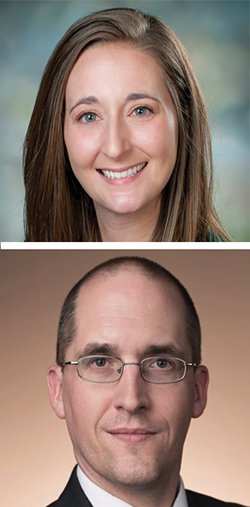 Teresa Evans of the University of Texas Health Science Center at San Antonio and Nathan Vanderford of the University of Kentucky, published a study in the journal Nature Biotechnology last year about mental health among graduate students. The results, Evans said, have “catalyzed an ongoing discussion” about what can be done to improve graduate students’ well-being.When Shauna Otto, a Ph.D. candidate at Oregon State University, is working through a bipolar episode and finds herself unable to reach out to others in her lab, her contact at the university’s Disability Access Services acts as a buffer, relaying messages between Otto and her primary investigator until she’s well enough to re-enter the lab.
Teresa Evans of the University of Texas Health Science Center at San Antonio and Nathan Vanderford of the University of Kentucky, published a study in the journal Nature Biotechnology last year about mental health among graduate students. The results, Evans said, have “catalyzed an ongoing discussion” about what can be done to improve graduate students’ well-being.When Shauna Otto, a Ph.D. candidate at Oregon State University, is working through a bipolar episode and finds herself unable to reach out to others in her lab, her contact at the university’s Disability Access Services acts as a buffer, relaying messages between Otto and her primary investigator until she’s well enough to re-enter the lab.
Both Agnes’ presence and Otto’s mediator are considered reasonable accommodations under Title I of the Americans with Disabilities Act; they allow individuals with disabilities to do their work to the same extent as people without disabilities. Rather than specifying which medical conditions constitute disability, the ADA considers a person to have a disability if they have a mental or physical impairment that substantially limits one or more major life activities.
The protections of the ADA and the right to request and receive accommodations extend to students at the primary, secondary and postsecondary levels for a gamut of visible and unseen disabilities, which includes the mental illnesses that a number of recent studies have found graduate students are more likely to have than the general population.
While accommodations can be clear-cut in an undergraduate setting — additional time for tests, an assignee to help with taking notes or even a student helper to lend an additional set of hands in a — the informal nature of research laboratories may leave graduate students and postdoctoral fellows feeling uneasy about disclosing their conditions to their PIs and requesting the accommodations they need.
While anecdotes suggesting a mental health crisis among graduate students had been circulating for years, a number of recent helped bring greater attention to the scale of the problem.
A paper in the journal Psychology Research and Behavior Management in March found that 23.7% of a surveyed 325 doctoral students at China Medical University in Shenyang exhibited signs of depression, and 20% exhibited signs of anxiety. In a paper in November 2018, researchers at Harvard University found that graduate students in economics programs experienced moderate or severe symptoms of depression and anxiety at rates more than three times greater than the general population.
Both of those papers came in the wake of a paper published in March 2018 in , wherein 41% of a surveyed 2,279 graduate students were found to have moderate to severe anxiety, and around 39% of the students were found to have moderate to severe depression. The authors, Teresa Evans and , pointed out those rates are much higher than those in the general population, as reported in other research studies and by various health organizations. Their results prompted an unprecedented flurry of news coverage and concern among the higher education community.
“There’s a lot of evidence showing this paper has been received by the community in a positive light and that it has catalyzed an ongoing discussion,” said Evans, an assistant professor at the University of Texas Health Science Center at San Antonio.
 Susanna Harris and her team share photos across PhD Balance’s social media accounts that are a conscious contrast to the stock photos often used to typify depression, such as those that ran with coverage of Evans and Vanderford’s Nature Biotechnology paper. “It all was accompanied by a photo of a woman crying in a window,” Harris said, “and that was really the impetus to start PhDepression on Instagram — to put that smiling face that everyone sees in academia and include a story that is often not told.Over the past year, Evans and Vanderford have spoken at universities across the United States about the results of their survey and the actions that PIs, students, faculty and administrative leaders can take to address the issue. They often are invited by trainees who want to see increased support for mental wellness.
Susanna Harris and her team share photos across PhD Balance’s social media accounts that are a conscious contrast to the stock photos often used to typify depression, such as those that ran with coverage of Evans and Vanderford’s Nature Biotechnology paper. “It all was accompanied by a photo of a woman crying in a window,” Harris said, “and that was really the impetus to start PhDepression on Instagram — to put that smiling face that everyone sees in academia and include a story that is often not told.Over the past year, Evans and Vanderford have spoken at universities across the United States about the results of their survey and the actions that PIs, students, faculty and administrative leaders can take to address the issue. They often are invited by trainees who want to see increased support for mental wellness.
One of the most prominent voices — or rather, faces — of the conversation about mental health among graduate students has emerged on social media. Susanna Harris, a graduate microbiology student, started an Instagram account called .
Since the first post — in which Harris discussed her own experience with depression and anxiety as a graduate student at the University of North Carolina at Chapel Hill — more than 100 early-career scientists with mental illnesses including PTSD, postpartum depression, bipolar disorder and borderline personality disorder have shared their stories. The PhDepression, now a social media limited liability company recently relaunched as PhD Balance, also has accounts on Facebook and Twitter as well as a blog for longer stories.
“What’s striking to me is the similarity of stories,” Harris said.
“The general tone is ‘I had a history of a little bit of imbalance, I knew that something was a little off in college, then I got to grad school and it was just this pressure cooker that precipitated all of these issues. Instead of having the resources and support that I did in undergrad, where I had an outside mentor or a counseling group or an RA or a roommate, I don’t have that and I don’t have the financial resources to feel comfortable getting them.’”
Reasonable accommodations
At the University of California San Diego, and her staff handle accommodations requests for undergraduates and graduate students, some of whom are navigating the onset of mental illness.
“I think that if they are experiencing these things for the first time, it’s very isolating and scary,” said Boval, the director of the Office for Students with Disabilities at UCSD.
Under of the Rehabilitation Act of 1973, which bans discrimination against individuals with disabilities in any program or activity receiving federal funds, public schools at all levels are required to make a reasonable effort to accommodate students in these activities. For Boval, accommodations are a matter of equity.
“We talk about leveling the playing field, right?” Boval said. “So, a reasonable accommodation usually differs from person to person, depending upon the impact of the disability and also the particular environment in which they are working or learning or doing a task.”
At a postsecondary institution such as UCSD, a request for a reasonable accommodation is processed by the university’s Office for Students with Disabilities, or OSD. This can be initiated by a student or by a referral from the university’s counseling and psychological services or student health services.
After a student has provided of a functional limitation, they meet with a disability specialist from the OSD to review their planned coursework and discuss potential accommodations. Boval and her staff work with about 500 students each quarter, more than half of whom receive accommodations for psychological disabilities.
From elementary through high school, a student’s parents and their interactions with teachers usually drive the accommodations process. Modifications such as waiving course requirements might be made to curriculum in a K-12 setting but are not an option at a university.
Adult options
“The responsibility is on the student to self-identify (and) to ask for what it is he or she feels they need in this particular environment,” Boval said. “It can be challenging if students don’t really understand what their disability is or how it really impacts them."
If a professor or PI resists making an accommodation for a student, Boval may have to resort to asking other faculty members for support.
“If I have difficulty getting through to a tenured faculty person about a situation accommodation … I will call a member of my faculty advisory committee and I’ll say, ‘Hey, look, here’s the situation. This is what we need to have happened. Can you talk to your colleague?’” she said. “More often than not, when the first faculty has heard from who they consider their peer, they are more likely, even if they do it reluctantly, to acquiesce.”
If those methods fail, students can through the Office for the Prevention of Harassment and Discrimination and, externally, the Office for Civil Rights, the U.S. Department of Education or private legal means.
In professional settings, if an employer refuses to provide a reasonable accommodation to an employee with a disability, the primary avenue of recourse is the , the federal agency responsible for enforcement of the ADA.
According to , the principal consultant and legislative specialist at the Job Accommodation Network, employers are responsible for accommodating an employee’s needs up until making an accommodation would be considered “undue hardship.”
Undue hardship is “a very, very broad term that encompasses a lot of things,” Carter said. “There are some specific things that employers don’t have to consider doing, and that’s things like creating new jobs, removing essential functions, providing personal need items like medications, things like that.”
The , which provides free guidance on workplace accommodations and disability employment issues, suggests a number of potential accommodations for , including alternative lighting, flexible scheduling, noise-canceling headsets and .
“Sometimes, they’ll ask to have marginal functions removed,” said , the lead consultant on JAN’s cognitive/neurological team. “Maybe some little tasks that they do that could be given to someone else, and then they would have more time to spend on the essential functions.”
If an employee and employer are unable to work out a reasonable accommodation, or an employee is denied an accommodation, the employee can file a complaint. The outcome depends on a number of factors, Carter said. These can include whether there was a valid reason for the request, whether the employer determined that the employee didn’t need an accommodation, whether the employer made a good faith effort and whether there were any accommodation options or any that would not create an undue hardship.
“In general, it’s important that an employer make and document that it made a good faith effort to try to accommodate,” Carter said. “If, ultimately, the employer determines that it cannot make an accommodation, the documentation of effort can be critical if the employee files a complaint.
“Also, it can be helpful to communicate with an employee about why an accommodation is being denied. Sometimes, if the employee understands why, the employee might not be as likely to file a complaint.”
Canines and convalescence
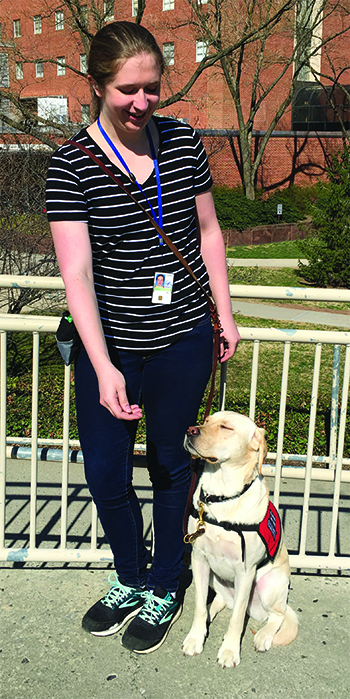 Robyn Stix, a postbaccalaureate fellow at the National Institutes of Health campus in Bethesda, Maryland, goes everywhere with a small pouch of treats and plastic bags for her service dog, Agnes, whose red vest bears the words “Not all disabilities are visible.” Stix has anxiety and Crohn’s disease.At the NIH, where Robyn Stix simulates the molecular dynamics of membrane proteins, Agnes often can be found sleeping under the desk. “She’s a lazy dog,” Stix said. “I think my lab mates would like it if she were a little more exploratory.”
Robyn Stix, a postbaccalaureate fellow at the National Institutes of Health campus in Bethesda, Maryland, goes everywhere with a small pouch of treats and plastic bags for her service dog, Agnes, whose red vest bears the words “Not all disabilities are visible.” Stix has anxiety and Crohn’s disease.At the NIH, where Robyn Stix simulates the molecular dynamics of membrane proteins, Agnes often can be found sleeping under the desk. “She’s a lazy dog,” Stix said. “I think my lab mates would like it if she were a little more exploratory.”
When Stix was an undergraduate at Skidmore College, she was diagnosed within one year with both Crohn’s disease and anxiety. In addition to the oxytocin released by close contact, which helps alleviate anxiety, Agnes also assists Stix with the painful gut flare-ups caused by Crohn’s, through deep pressure therapy.
While Agnes’ presence beside Stix is considered a reasonable accommodation, she may have been considered undue hardship in a lab where a dog might cause stress in lab animals. When Stix interviewed with her PI, JosĂ© Faraldo-GĂłmez, she was forthright in requesting Agnes be allowed with her in the lab.
“I like to be upfront, because I want to be sure it’s a good environment. If someone’s going to be different because I have a service dog, I don’t want to end up in a lab like that,” Stix said. By her account, Faraldo-GĂłmez was happy to oblige. “When I visited, Jose made sure to ask where we would fit best in the room.”
When a mental health issue prevents someone from physically being able to get into a lab space, the best option may be to give that person time and space to work through their depressive or anxiety episodes.
“I would say, with individuals who have a chronic mental health challenge or who have a chronic health issue, one of the reasonable accommodations may be something like occasional absences, because the disability is so impactful that they physically can’t get into the space,” said UCSD’s Boval.
When Shauna Otto was in the depths of a depressive episode last winter, a psychiatrist on campus at Oregon State referred her to the university’s disability access services at the Office of the Dean of Student Life. There, she and a staff member were able to work out the details of a reasonable accommodation in which the counselor would act as a communications buffer when Otto found herself unable to reach out to the members of her lab.
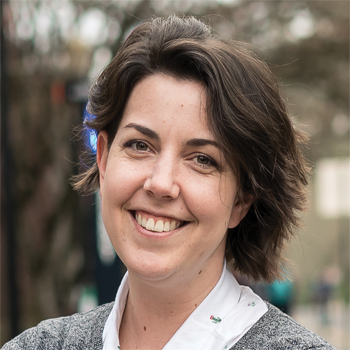 Shauna Otto didn’t know accommodations were available to her when her she was grappling with a mood disorder as an undergraduate. She was well into her graduate studies at Oregon State University when an on-campus psychiatrist referred her to the office for students with disabilities. There, she was assigned a counselor who helps her stay in touch with her lab when she suffers a debilitating episode.Otto, who first began experiencing bipolar disorder near the end of her time as an undergraduate, said she didn’t know accommodations were an option during the years she fought against her anxiety and depression.
Shauna Otto didn’t know accommodations were available to her when her she was grappling with a mood disorder as an undergraduate. She was well into her graduate studies at Oregon State University when an on-campus psychiatrist referred her to the office for students with disabilities. There, she was assigned a counselor who helps her stay in touch with her lab when she suffers a debilitating episode.Otto, who first began experiencing bipolar disorder near the end of her time as an undergraduate, said she didn’t know accommodations were an option during the years she fought against her anxiety and depression.
“We ended up deciding that she would just be my contact and liaison,” Otto said. “Sort of a safe third party who would be able to keep in contact with me while I’m working through my stuff or bouncing back from an episode. She would email my PI and anybody else in the department that needed to get ahold of me and sort of be a Shauna concierge.”
Now nearing what will likely be the final year of her Ph.D. program, Otto said she feels optimistic about her ability to manage the depression-compounding anxiety that left her temporarily homeless near the end of her senior year of college and with mixed success during a postbaccalaureate program.
“I feel a lot better, even just reporting issues immediately to my adviser,” Otto said. “Just having that crutch, having a safe person to help me manage communication.”
‘More than a pair of hands’
Akshat Sharma was diagnosed with major depressive disorder in 2012. His depressive episodes and medication seemed a thing of the past when he left his graduate school support network at the University of Wisconsin-Madison for a postdoctoral fellowship at the University of Texas Health San Antonio last year.
In Madison, Sharma had been a part of the local theater community. In San Antonio, he was daunted by the musical-heavy theater scene, which he saw as difficult to break into. He didn’t know anyone outside his lab and felt alienated by his new neighborhood. Two men he’d known and admired back in the Midwest died by suicide in quick succession.
In the San Antonio lab, Sharma was tasked with wrapping up a departing postdoctoral fellow’s project, which involved dissecting 20 mice in a day and processing four tissues from each for flow analysis.
“That was his jam,” Sharma said. “It was not mine. My idea of a big day in lab was when I would bleed five people and work with their samples. So this was all really new and terrifying.”
All these factors contributed to a depressive episode that came to a head after a large experiment failed. Although his mistakes were only a small factor, Sharma took the whole of the blame on himself, he said, which pushed his depression and suicidal ideation beyond any past point.
“It’s like the depressive and the suicidal ideation are two guys on Tinder who swiped right on each other but have yet to make a date,” Sharma said. “But this was the one time that I think was terrifying because it was the one time that I was very seriously planning on — on doing it.”
When Sharma’s PI realized the gravity of the situation, she contacted Sharma’s doctoral adviser at UW-Madison, who reached out to Sharma.
Soon afterward, Sharma began working with a psychiatry resident at the medical school. After an adjustment period, he resumed taking medication for his depression.
Once the worst of Sharma’s depression had passed and he wanted to get back to work, his PI removed him from larger projects to ease him back into a routine, which he initially misinterpreted as being shut out due to incompetence.
“I think she just felt like I needed a break, but the state of mind that I was in I was like ‘My god, they’re shutting me out of experiments, because I’m incompetent.’”
When Sharma talked to his PI, he said, she told him she was trying to help him by reducing his stress — though experts might contend that an unrequested accommodation is not the most advisable course. When he told her he was embarrassed that she had to deal with his problem, he said, she responded by asking if he’d be embarrassed if he broke his leg and couldn’t work.
“(That) crystallized a lot of things for me,” Sharma said. “It showed that she saw me as more than a pair of hands; she was willing to be accommodating to make sure that the environment in lab was one where I could grow and feel comfortable.”
The lab as family unit
While Otto, Stix and Sharma found themselves with supportive PIs, not all early-career scientists are as fortunate. While hard statistics on graduate students’ relationships with their advisors are difficult to come by, accounts of the between students and their primary investigators or advisers abound on Twitter and of the web.
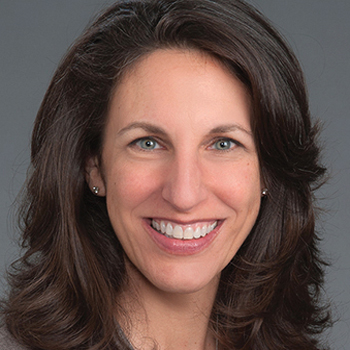 Paige Bentley, director of counseling and wellness services at Wake Forest University, thinks many Ph.D. students struggle in the lab environment. “All of the dynamics that would come up in a family show up in a lab as well,” she said.“I think one of the biggest struggles for Ph.D. students is the lab environment,” said Paige Bentley, the director of counseling and wellness services at Wake Forest University. “It’s a small environment and it has characteristics of a family unit, so all of the dynamics that would come up in a family show up in a lab as well.”
Paige Bentley, director of counseling and wellness services at Wake Forest University, thinks many Ph.D. students struggle in the lab environment. “All of the dynamics that would come up in a family show up in a lab as well,” she said.“I think one of the biggest struggles for Ph.D. students is the lab environment,” said Paige Bentley, the director of counseling and wellness services at Wake Forest University. “It’s a small environment and it has characteristics of a family unit, so all of the dynamics that would come up in a family show up in a lab as well.”
For Beth Haas, an assistant professor of chemistry at Misericordia University, a history of dealing with mental illness has helped inform interactions with students who might be struggling themselves.
“I learned in graduate school that this terrible monster feeling I had that would grip me from time to time had a name, and that name was Anxiety, and that Anxiety at times led to depression,” said Haas.
During graduate school, Haas said, she had a supportive adviser who both affirmed Haas’ decision to seek counseling and asked what else she could do to help Haas.
“I’m kind of also passing that along, you know, paying it forward by telling my students, “It’s OK to not feel OK sometimes, and you’re not alone in that,’” Haas said.
At Misericordia University, a liberal arts college in Dallas, Pennsylvania, small class sizes give Haas the ability to get to know her students better than when she was a visiting professor at Michigan State University, she said.
“Because there are a few of them, and I get to know them so personally, I noticed things that I couldn’t notice in a room of 125 (students),” she said. “So I’m noticing individual distress. And I’m also able to talk to that person because they know me and I know them.”
By opening up to her students about her own history, Haas has been able to offer them a safe space to share their anxieties and illnesses.
“(A student) told me in my office hours one day that she had appreciated that I had told the class that I am a shy person and can be very anxious about meeting new people,” Haas said. “That doesn’t mean you have to tell everybody on the street, ‘Hey, hi, I have anxiety! Nice to meet you!’ But having that sense that if you had a physical health issue, people would be understanding and supportive and sympathetic and all of that. Mental health doesn’t have to be different. Right?”
Extra instruction
At Virginia Polytechnic Institute and State University, , a professor of biochemistry, approves accommodations for some of his students almost every semester.
“In general, interacting with students through this structured process has gone smoothly. The students seem comfortable approaching instructors to discuss their need for accommodations,” Kennelly said.
Most of the accommodations he sees as a lecturer fall under the umbrella of expanded test-taking options.
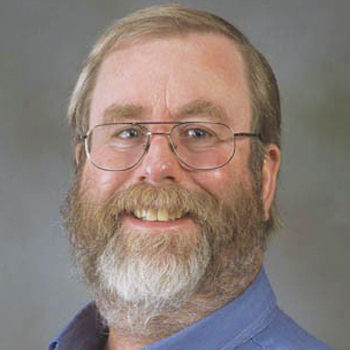 Peter J. Kennelly, a professor at Virginia Polytechnic Institute and State University, saying having a structured accommodations process and sticking to it “saves the student from having to repeatedly negotiate with instructors and relieves the instructor of trying to act as an amateur psychologist.”“In recent years, faculty at my university have been informed that we are to refer students to the counseling office rather than attempting to assist students with emotional and other issues,” Kennelly said. “My own sense is that placing the decision — as to whether or not a student has a legitimate need for an accommodation — in the hands of a professionals with whom students can interact privately works well. It saves the student from having to repeatedly negotiate with instructors and relieves the instructor of trying to act as an amateur psychologist.”
Peter J. Kennelly, a professor at Virginia Polytechnic Institute and State University, saying having a structured accommodations process and sticking to it “saves the student from having to repeatedly negotiate with instructors and relieves the instructor of trying to act as an amateur psychologist.”“In recent years, faculty at my university have been informed that we are to refer students to the counseling office rather than attempting to assist students with emotional and other issues,” Kennelly said. “My own sense is that placing the decision — as to whether or not a student has a legitimate need for an accommodation — in the hands of a professionals with whom students can interact privately works well. It saves the student from having to repeatedly negotiate with instructors and relieves the instructor of trying to act as an amateur psychologist.”
According to Nathan Vanderford, an assistant professor in the department of toxicology and cancer biology at the University of Kentucky and author on the 2018 Nature Biotechnology study, even if PIs have a successful history of mentoring, they sometimes feel ill-equipped to handle many sensitive topics, including the mental health struggles of their trainees.
“There’s a great need for more faculty training in broad areas of mentorship to include mental health and well-being issues, because most faculty currently receive no training on how to be an effective mentor, much less on how to deal with important health and wellness issues,” Vanderford said. “When Teresa and I speak about our graduate student mental health work, we make it clear that we’re not healthcare professionals in this area. PIs or mentors shouldn’t feel like they need to be healthcare professionals in this area either, but we all need to be equipped with the basic information on how to connect trainees and colleagues with helpful resources.”
According to , a professor and the dean of the graduate school at the University of Georgia, faculty members at UGA are encouraged to direct students who may be in a crisis to the university’s Student Care and Outreach Center.
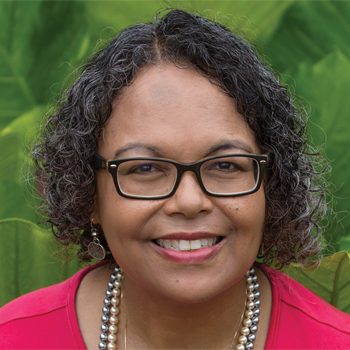 Each fall, the graduate school at the University of Georgia offers a brown-bag workshop on mental health for faculty members and students. “It is our most highly attended offering of the entire year — every single year,” said Suzanne Barbour, the dean.“They are kind of the nexus to direct students to services that can help them get out of crisis, whether it’s an academic crisis, a financial crisis, a mental health crisis, a behavioral crisis,” Barbour said. “It’s a unit to which faculty can refer their students when a faculty member may say, ‘Well, I just don’t know how to help.’”
Each fall, the graduate school at the University of Georgia offers a brown-bag workshop on mental health for faculty members and students. “It is our most highly attended offering of the entire year — every single year,” said Suzanne Barbour, the dean.“They are kind of the nexus to direct students to services that can help them get out of crisis, whether it’s an academic crisis, a financial crisis, a mental health crisis, a behavioral crisis,” Barbour said. “It’s a unit to which faculty can refer their students when a faculty member may say, ‘Well, I just don’t know how to help.’”
Additionally, the graduate school at UGA starts every academic year with a “lunch and learn” for faculty and students focused on mental health.
“It is our most highly attended offering of the entire year — every single year. We get some people who come back every year, but there are always new faces,” Barbour said. “We give them a sense of what mental health resources we have on campus for students … but a lot of times, it’s just them asking questions, saying, ‘This is what’s happening with my students. What should I do?’”
At the University of Texas Medical Branch at Galveston, and other faculty members work similarly to inform graduate students about the resources available on campus.
“One of the things that we thought would be important was to immunize students very early in their careers,” said Niesel, senior vice president and dean of the graduate school of biomedical sciences.
The faculty sought to do this through adding material about survival skills for burnout and depression to a pre-existing longitudinal course about ethics, in addition to providing graduate students in the course with information about the office of counseling and psychological services.
At UCSD, Boval and colleagues work with the Teaching and Learning Commons, a section of the executive vice chancellor’s executive branch, to increase institutional awareness of the accommodations process. Last summer, the commons mandated that instructional assistants on campus, who lead small discussion sections of 25 to 30 students for large lecture courses, needed to go through an online training program about disability and accommodations.
“The hope is that as our campus grows, we’re going to continue to have more instructional assistants on the front line with the students,” Boval said. “We’re hoping that by having this mandatory training, we give them tools and skills that they can start using their first quarter in their roles, and that they will start educating, in small ways, the faculty that they report to.”
Disclosure
As Stix looks to the future of her scientific career, she’s uncertain about how PIs might react to her mental health status.
“I don’t mind saying that I have anxiety or that I’m on SSRIs (selective serotonin reuptake inhibitors), but I know that some people judge you differently because of that,” Stix said.
Stix thinks she might stay in her current lab for graduate school but doesn’t know how accepting other PIs might be about having a dog in the lab, even with the mandatory protections of the ADA.
“I don’t want to limit where I go,” she said. “But I also know that, unfortunately, it’s a big risk to go elsewhere, because even with interviewing, I might not know how they’d treat me there, how they’d treat her.”
Laurel Oldach contributed to this report.
Enjoy reading ASBMB Today?
Become a member to receive the print edition four times a year and the digital edition weekly.
Learn moreFeatured jobs
from the
Get the latest from ASBMB Today
Enter your email address, and we’ll send you a weekly email with recent articles, interviews and more.
Latest in Careers
Careers highlights or most popular articles

Upcoming opportunities
Just added: Register for ASBMB's virtual session on thriving in challenging academic or work environments.

Who decides when a grad student graduates?
Ph.D. programs often don’t have a set timeline. Students continue with their research until their thesis is done, which is where variability comes into play.

Upcoming opportunities
Submit an abstract for ASBMB's meeting on ferroptosis!

Join the pioneers of ferroptosis at cell death conference
Meet Brent Stockwell, Xuejun Jiang and Jin Ye — the co-chairs of the ASBMB’s 2025 meeting on metabolic cross talk and biochemical homeostasis research.

A brief history of the performance review
Performance reviews are a widely accepted practice across all industries — including pharma and biotech. Where did the practice come from, and why do companies continue to require them?

Upcoming opportunities
Save the date for ASBMB's in-person conferences on gene expression and O-GlcNAcylation in health and disease.

